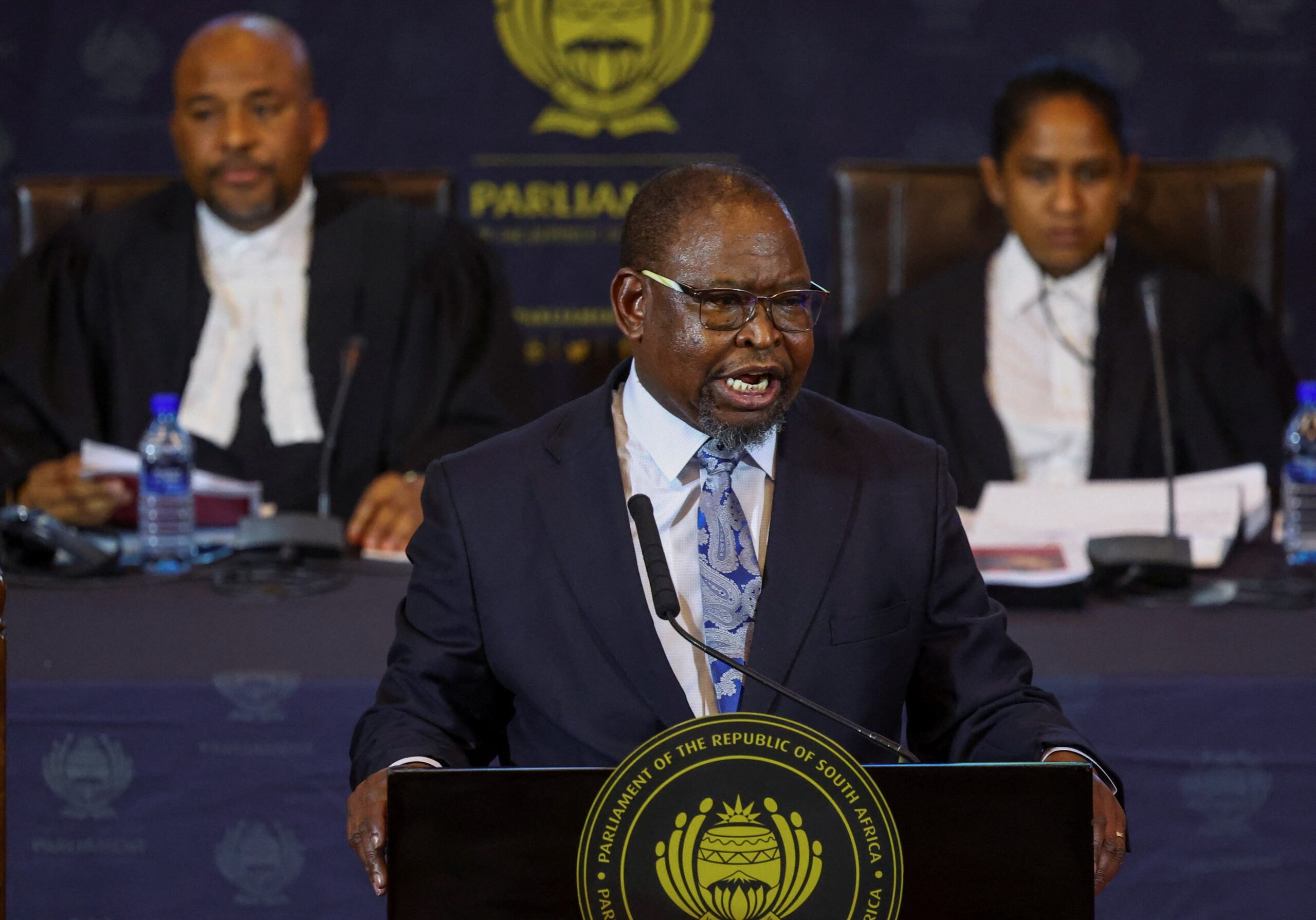
Do you think it will work this time? This year, South Africa needs to fix a budget hole of $4.1 billion
On May 21, Finance Minister Enoch Godongwana will make a third attempt to pass South Africa’s budget in parliament after two previous attempts were thwarted by disagreements with coalition partners over proposals to raise taxes.
Godongwana must close a revenue gap of 75 billion rand ($4.1 billion) that resulted from his decision to reverse his earlier plans to increase value-added tax (VAT) while attempting to continue with debt stabilization.
In the case of another budget collapse, funding for everything from frontline services to assistance for struggling state-owned enterprises like power company Eskom may eventually be curtailed.
SO FAR, WHAT HAPPENED?
The kind of coalition instability that Africa’s largest economy had never experienced until the African National Congress lost its parliamentary majority in last year’s election caused South Africa’s first two budget proposals to fail.
The ANC is the largest party in the wide multiparty government, and the Democratic Alliance is the second largest. When they objected to a two-percentage-point VAT raise, the budget that was scheduled for February 19 was abruptly canceled.
The DA went to court when Godongwana reappeared on March 12 with a more nuanced plan to divide the VAT hike into two 0.5-point increments spread over two years.
In order to avoid legal action and possible coalition dissolution, Godongwana completely abandoned the raise, leaving a three-year deficit of 75 billion rand.
In what ways will Godongwana close the gap?
Godongwana may depend on a combination of budget reductions and the expectation that revenue collection would continue to surpass forecasts.
In April, the tax agency of South Africa said that it had received 8.8 billion rand more in the fiscal year 2024–2025 than anticipated.
Chief economist Jeffrey Schultz of BNP Paribas’ Central & Eastern Europe, Middle East, and Africa division is hopeful that the National Treasury would adhere to its fiscal consolidation goals and its goal of sustaining a primary budget surplus in the medium run.
CLIMBING BOND ISSUANCE?
25% of South Africa’s 5.7 trillion rand is held in government bonds and Treasury bills, making the country’s domestic fixed income market a staple for foreign investors.
Macro economist and fixed income specialist Kim Silberman of Matrix Fund Managers stated that any rise in the weekly amounts up for auction in the domestic bond market would be minimal.
They are in advance and have pre-funded. According to Silberman, they are spending more money in 2025 and 2026 than they had originally planned.
According to Silberman, a slight increase from the present weekly sales of nominal bonds of 3.75 billion rand would not unnerve investors, but it would push rates higher.
Primary dealers placed orders at this week’s government bond auction, opening a new tab for nearly four times the quantity of securities available for purchase.
WILL THERE BE A TAPPING OF CONTINGENCY RESERVES?
The Gold and Foreign Exchange Contingency Reserve Account, which was worth 390 billion rand as of April 30, records appreciation gains on South Africa’s holdings.
In February of last year, the government declared that it will begin using it to reduce borrowing, something it may do without parliamentary consent.
Rising gold prices in April caused the central bank’s gold holdings to increase by over 6% month over month to 245 billion rand.
Instead of hiking taxes, civil society organizations like the Institute for Economic Justice have asked the Treasury to use the contingency reserves.
Exactly where may things go wrong?
To pass the budget, the government requires a simple majority, but more disputes within the ruling coalition could make the vote less successful.
Parliament must adopt the fiscal framework and revenue proposals within 16 working days of the budget being tabled. Following that, it must pass the appropriation bill and the division of revenue measure.
Up to 45% of the previous year’s budget may be spent by the government before the new budget is approved by parliament. Spending would have to be reduced after that.
With a favorable outlook for South Africa, S&P Global Ratings will be closely monitoring the revised fiscal framework, which establishes total spending caps, when it reviews its rating on Friday.
If the outcome is credible, South Africa may receive its first rating improvement in twenty years; if it is not, future borrowing rates may increase and investor interest in local assets may decline.
All Categories
Recent Posts
Tags
+13162306000
zoneyetu@yahoo.com



